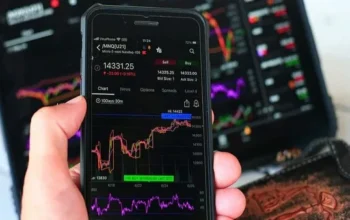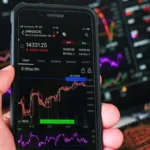Greece developed its economic structure because the country sits at a crucial geographic junction between Europe, Asia, and Africa. Economic development in Greece depends heavily on its shipping and logistics sector, since these sectors form the essential foundation for intercontinental commercial exchanges. The maritime strategic location and operational capabilities resulted in Greece solidifying its position as a major maritime power all while leveraging its seacoast area, port facilities, and capabilities. National GDP and employment depend heavily on the shipping industry to achieve its economic standing as an essential force in Greece. The logistics elements of this industry have gained equal importance, because global trade and shipping networks have become more intricate and complex in recent times.
Greece positions itself among leading nations in shipping fleet size, which contributes to the industry’s vital economic significance in the country. Greece leads the worldwide shipping industry by handling trade movements of crude oil, together with liquefied natural gas shipments and dry bulk material. The Mediterranean position of Greece makes it an essential participant in worldwide shipping operations, where Greek vessels transport products globally. Through its maritime success, Greece creates economic opportunities that boost additional business sectors, while sustaining development in industries from shipbuilding to insurance to maritime services.
Greece has advanced its logistical infrastructure noticeably since the last few years, which increased its position as an essential trading hub in the region. Piraeus, among other principal ports, has received considerable infrastructure modernizations to improve its capacity for handling growing maritime freight volumes. The enhanced logistics infrastructure functions to improve Greek shipping capabilities, while generating foreign investments worldwide. International corporations have chosen Greek ports as their sites for expansion, because of their status as European distribution points that open doors to international markets. The international market position of Greece strengthens due to improved road systems alongside rail tracks and storage facilities which turn the country into a critical global supply chain hub.
Modern development within Greece’s shipping and logistics sectors attracts increased investment interests from business entities. The expanding trade routes, combined with an interconnected global market, encourage investors to pursue opportunities that benefit from Greece’s growing shipping industry. Certain investors have used the opportunity to expand their portfolios into precious metals trading. The economic triumph of Greece through shipping and logistics activities has created new pressures from global market risks that drive investors towards secure investment opportunities. Precious metals have historically protected investors from different types of economic risks during times of uncertainty because they retain solid value positions.
Global market instabilities and rising market demand for gold and silver metals generates immediate effects for Greek business traders operating within this industry. Multiple investors choose precious metals trading because it serves as an asset protection method due to present global economic uncertainties. Investors achieve stability in their portfolios by using precious metals trading since this market delivers stability different from shipping industry growth potential. Greece-based traders now rely on precious metals trading to diminish economic risks that threaten their shipping pursuits, along with logistics operations.
The economic success of Greece depends heavily on shipping and logistics industries, because both sectors will maintain their vital roles for national development. The maritime industry of Greece will endure because of its new port infrastructure, upgraded national framework, and its major stance in international trade operations. Precious metal trading stands as a preferred protection strategy for Greek investors while they expand their investment portfolio. As Greece evolves economically, it smoothly transitions between established industries, while exploring new wealth possibilities in precious metals markets. Greece’s combination of well-developed shipping and logistics sectors, alongside its secure precious metals marketplace, will determine how the nation progresses economically in this uncertain world.









